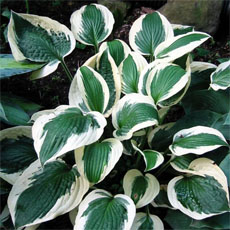Common Grackle
Quiscalus quiscula
This bug has been reportedly found in the following regions:
Tempe, Arizona
Little Rock, Arkansas
Hayward, California
Littleton, Colorado
Dover, Delaware
Big Pine Key, Florida
Daytona Beach, Florida
Fort Lauderdale, Florida
Jacksonville, Florida
Lecanto, Florida
Melbourne, Florida
Santa Rosa Beach, Florida
Montpelier, Idaho
Algonquin, Illinois
Cherry Valley, Illinois
Madison, Illinois
Westchester, Illinois
Carmel, Indiana
Corunna, Indiana
Dubuque, Iowa
Hebron, Kentucky
Irvine, Kentucky
Melbourne, Kentucky
Baton Rouge, Louisiana
Clinton, Maryland
Halifax, Massachusetts
Plympton, Massachusetts
Belleville, Michigan
Dearborn, Michigan
Dearborn Heights, Michigan
Jackson, Mississippi
Cole Camp, Missouri
Conway, Missouri
Saint Louis, Missouri
Sedalia, Missouri
Las Vegas, Nevada
Beachwood, New Jersey
Clark, New Jersey
Marlton, New Jersey
Rancocas, New Jersey
Woodstown, New Jersey
Hobbs, New Mexico
Monument, New Mexico
Himrod, New York
West Islip, New York
Yonkers, New York
Winston Salem, North Carolina
Belfield, North Dakota
Bucyrus, Ohio
Corning, Ohio
Dayton, Ohio
Geneva, Ohio
Lebanon, Ohio
Oak Harbor, Ohio
Hanover, Pennsylvania
Mc Keesport, Pennsylvania
Philadelphia, Pennsylvania
Pittsburgh, Pennsylvania
Wilkes Barre, Pennsylvania
Columbia, South Carolina
Edisto Island, South Carolina
Jonesborough, Tennessee
Memphis, Tennessee
Austin, Texas
Cleburne, Texas
Fort Worth, Texas
Gainesville, Texas
Georgetown, Texas
San Antonio, Texas
Salt Lake City, Utah
Ashburn, Virginia
Hurt, Virginia
Keswick, Virginia
Roanoke, Virginia
Walkerton, Virginia
show allFeatured Videos
boxwood4
They're messy, harass the smaller birds, fight with each other, ruin our fruits...flocks come in spring and bombard our cabin in back, deck, and umbrellas. A lot of clean up work for us.
A few stay all year. Seems that a few aren't a problem of grackles or robins but just flocks.
walterp
I find, when that small group of grackles who decide to stay, most pair up and mate. I always see a group of about of six "bachelors" that aggressively scout for food, harass the other birds for the "nesters" until the "nesters" chicks are old enough to fend for themselves. I've seen the adults bring the chicks to the robin's second nesting to raid their nest. I hate them!
My three worst birds that raid the feeder are crackles, doves and pigeons.

















































